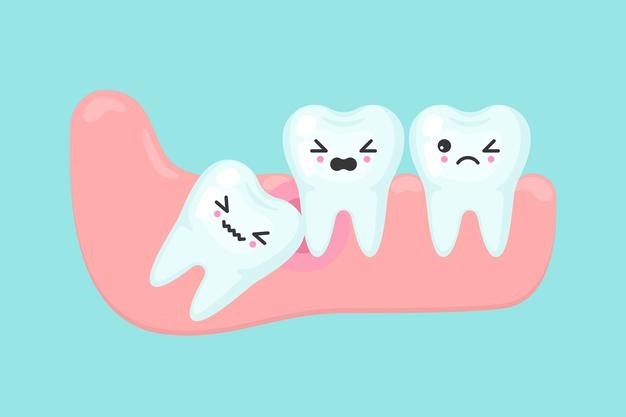Introduction:
Wisdom teeth, also known as third molars, typically emerge between the ages of 17 and 25. While some people experience a painless eruption, others may encounter discomfort and swelling due to wisdom tooth pain. In this blog, we will explore the symptoms, causes, and effective remedies to find relief from unbearable wisdom tooth pain.
Understanding Wisdom Tooth Pain: Wisdom tooth pain is characterized by aching or throbbing sensations around the back of the mouth, often affecting one or more of the four third molars. The pain can vary from mild discomfort to excruciating agony, making everyday activities like eating and speaking challenging.
Common Symptoms of Wisdom Tooth Pain:
- Throbbing or persistent pain in the back of the mouth.
- Swelling and redness of the gums around the wisdom teeth.
- Difficulty in opening the mouth due to stiffness and pain.
- Headaches and earaches caused by referred pain from the wisdom teeth area.
- Bad breath and an unpleasant taste in the mouth due to trapped food particles.
Causes of Wisdom Tooth Pain:
- Impacted Wisdom Teeth: When there is insufficient space in the jaw, the wisdom teeth may become impacted, leading to pain and swelling.
- Infection: Bacteria can accumulate around partially erupted wisdom teeth, causing infection in the surrounding tissues.
- Erupting Wisdom Teeth: As wisdom teeth grow and try to break through the gum line, they can exert pressure on adjacent teeth and cause pain.
- Pericoronitis: This condition occurs when the gum tissue covering a partially erupted wisdom tooth becomes inflamed and infected.
Remedies for Wisdom Tooth Pain:
- Over-the-Counter Pain Relievers: Non-steroidal anti-inflammatory drugs (NSAIDs) like ibuprofen can provide temporary relief from wisdom tooth pain and reduce inflammation.
- Saltwater Rinse: Gently rinsing your mouth with warm saltwater several times a day can help cleanse the area and alleviate pain.
- Clove Oil: Applying a cotton ball soaked in clove oil to the affected area can provide natural pain relief due to its numbing properties.
- Ice Pack: Placing an ice pack on the outside of your cheek can help reduce swelling and numb the area, providing relief from pain.
- Avoiding Trigger Foods: Stick to soft foods and avoid hot, cold, or spicy foods that may exacerbate the pain.
Seeking Professional Help:
While home remedies can offer temporary relief, it’s essential to consult a dentist if the pain becomes unbearable or persists. Dentists can evaluate the situation, take X-rays, and recommend appropriate treatment options, such as:
- Wisdom tooth extraction: Removing the problematic wisdom teeth may be necessary to alleviate pain and prevent future issues.
- Antibiotics: If there’s an infection, your dentist may prescribe antibiotics to combat the bacterial growth.
Preventing Wisdom Tooth Pain:
Though not entirely preventable, maintaining good oral hygiene and scheduling regular dental check-ups can help identify potential issues with wisdom teeth early on. Early detection can prevent severe pain and complications.
Conclusion:
Dealing with wisdom tooth pain can be distressing, but understanding the symptoms, causes, and remedies can help you manage the discomfort effectively. Remember, while home remedies may provide temporary relief, seeking professional dental care is crucial to address the root cause of the pain. Prioritize your oral health and consult your dentist promptly if you experience unbearable wisdom tooth pain.


No comments yet